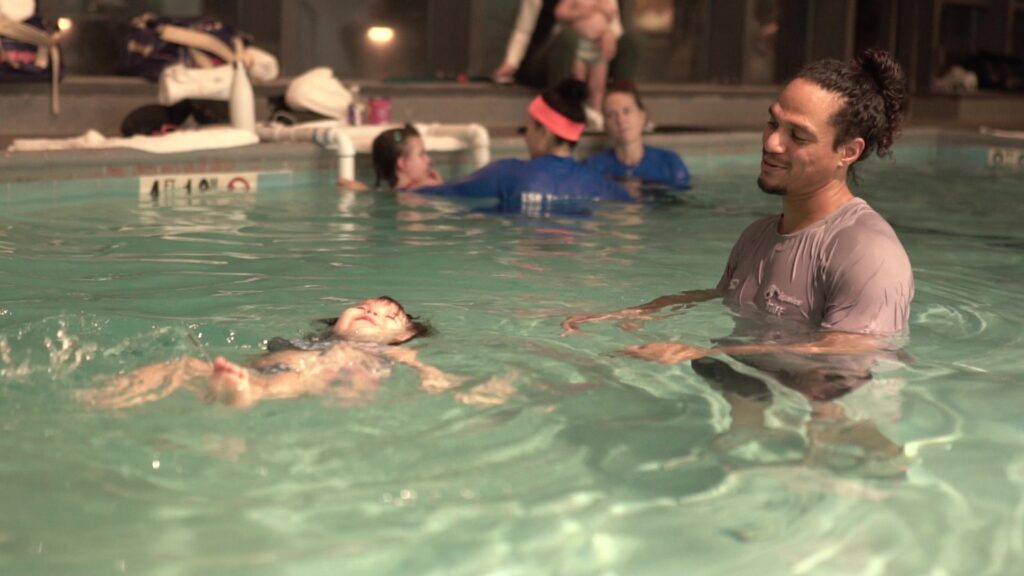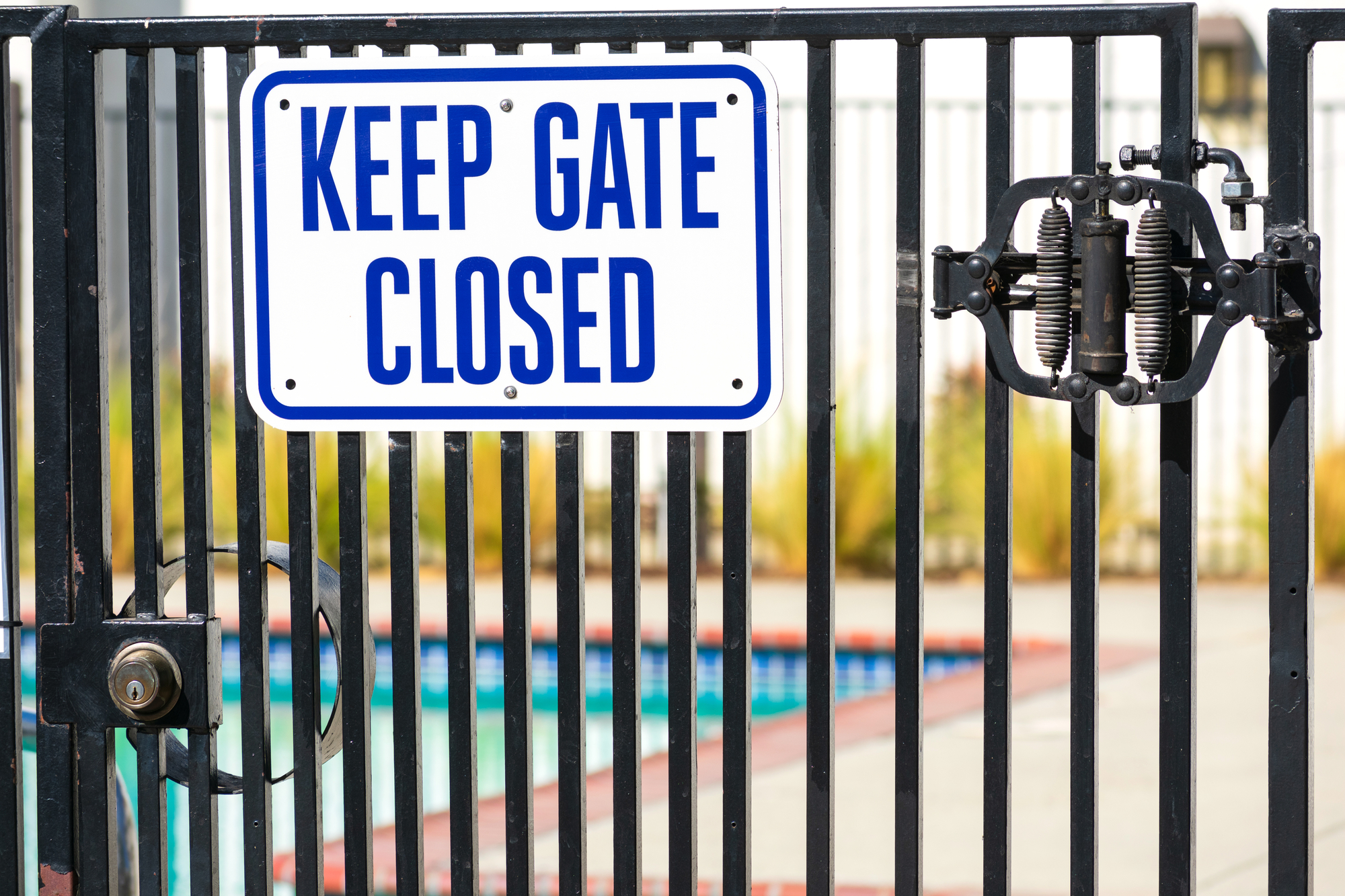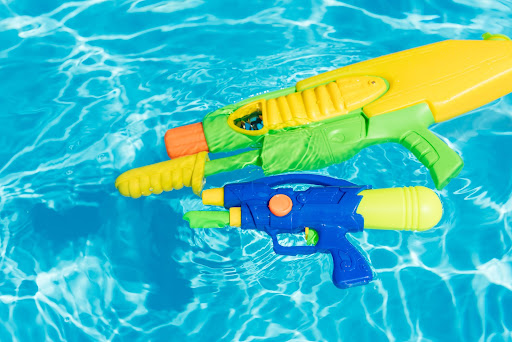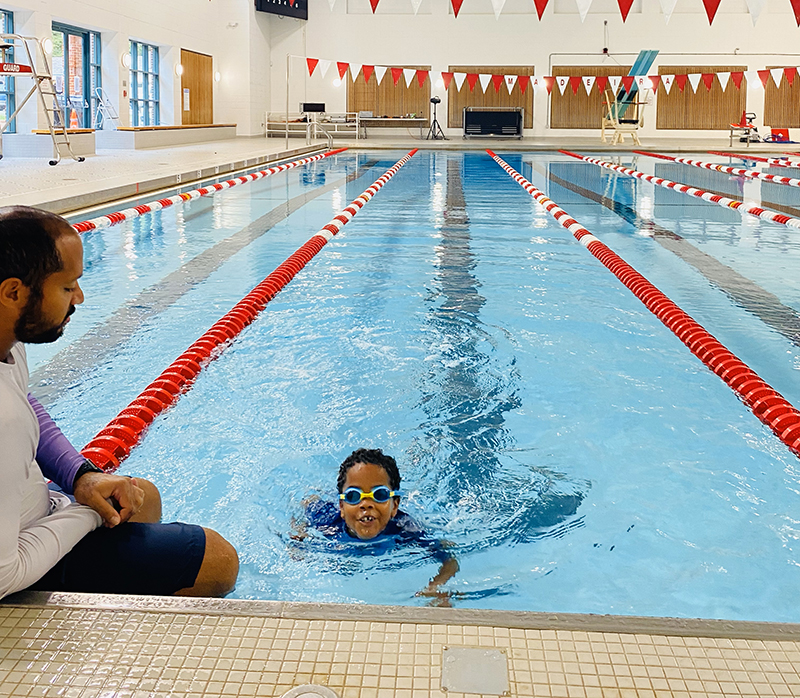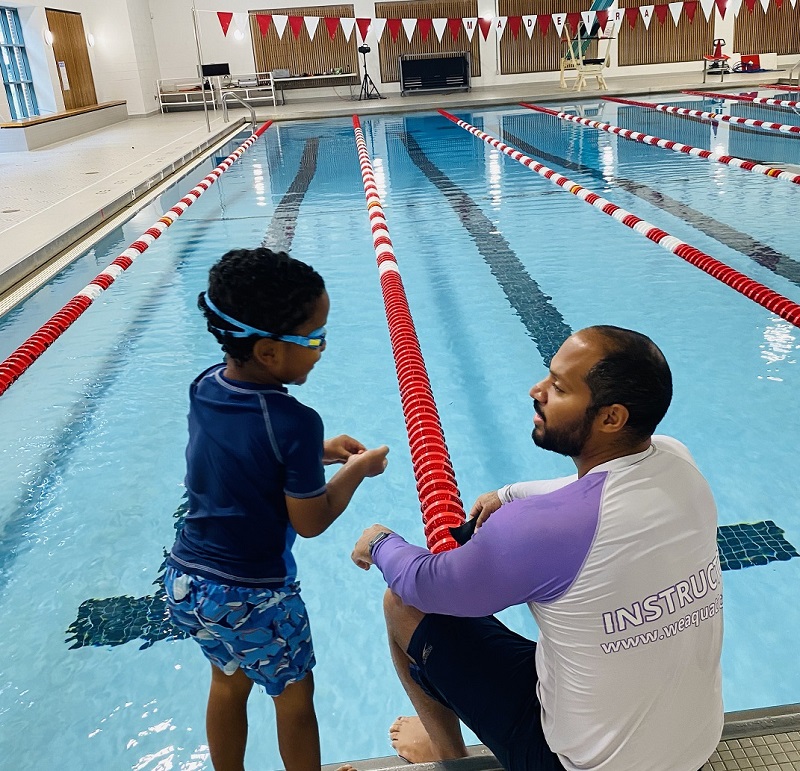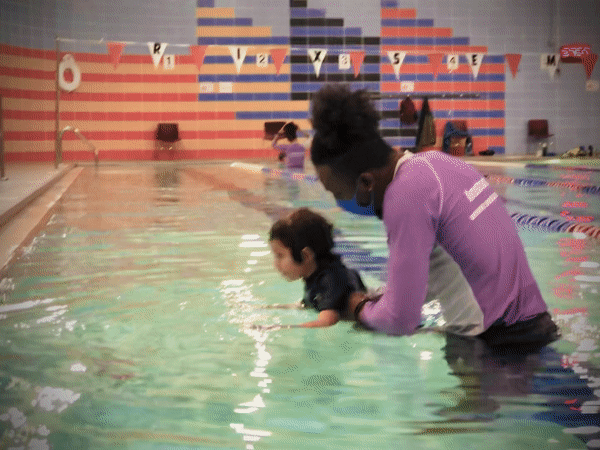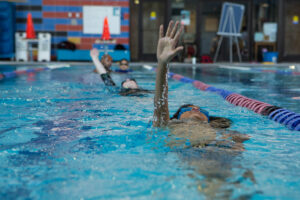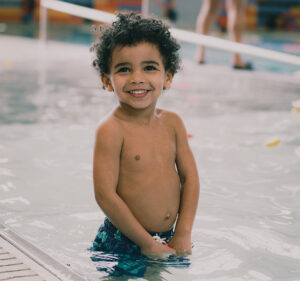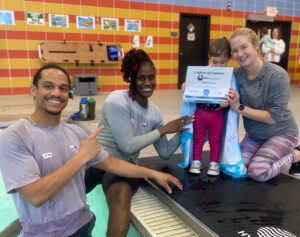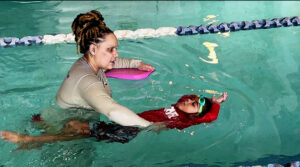Water Safety Starts with You!
A pool is a great way for the whole family to have fun, but the proper safety precautions must be taken. While the statistics on child drownings are scary, there is good news. These ten steps are all easy ways to make your pool as safe as possible for everyone:
1. Use Pool Barriers and Covers
Limiting unintended access to the water is key to pool safety. Make sure your pool is surrounded by the proper fences, barriers, and covers.
Here are some tips for increased safety:
-
- Use a self-closing, self-latching gate.
- Ensure the gate locks.
- Don’t leave anything by the fence that allows children to scale it.
- Drain rainwater that collects on your pool cover, or use one that allows water to drain back into the pool.
- Your pool cover should be sturdy enough to support the weight of an adult and too heavy for a child to lift.
2. Never Leave Pool Toys in the Water
Pool toys are designed to attract the attention and interest of children. Never leave them floating in your pool when no one is swimming! Naturally curious children, especially toddlers, could be attracted to the bright colors and fall into the water while reaching for the toy.
3. Install a Pool Alarm
Depending on the type of alarm you purchase, a pool alarm alerts you whenever someone is in or near the pool. Alarms typically work either by detecting waves in the pool or registering when a light beam is broken.
These alarms are sensitive, but keep it armed at all times—even if you’ve gotten a false reading or two. Drowning often happens quickly and silently. When precious seconds matter, an alarm could be the only way you know your little one has unintentionally entered the water.
4. Keep All Pool Chemicals Locked and Secure
Keeping your pool clean is essential for everyone’s health, but the chemicals used are highly toxic. If you clean your pool yourself and keep these chemicals at home, always make sure they’re under lock and key where curious little ones can’t access them.
5. Have First Aid Nearby
A first aid kit doesn’t need to be fancy, but every pool owner should have one on hand. Here are just some items that should be readily available in case of a minor or moderate accident:
-
- Antibiotic ointments
- Adhesive bandages
- Cold compresses
- Gauze
- Latex gloves
It’s also a great idea to take a CPR class. In the event of an emergency, it could be a lifesaving measure while you’re waiting for professional medical help to arrive.
6. Always Have an Adult Supervising
When children are swimming, an adult must always be present. Here are some safety tips to keep in mind about adult supervision at the pool:
-
- Preferably, the adult watching should know how to swim.
- When everyone is watching, no one is watching. Appoint one person specifically to watch the children swim. This person can rotate throughout the day, but the handoff of responsibilities needs to be explicit and clear.
- The adult watching should have no distractions. No phone browsing. No reading. No running off to do something, even for a minute.
7. Insist on Flotation Devices for Non-Swimmers or Weak Swimmers
If you have children in your pool who can’t swim or are weak swimmers, make sure they’re wearing appropriate, effective flotation devices. Water wings and floaties might be cute, but they don’t undergo the same testing, rigorous standards, and material requirements as actual life jackets or personal flotation devices (PFDs). Whether it’s for your kid or a visitor in your pool, insist on proper safety gear in the water.
8. Maintain the Area around the Pool
Many tragedies around pools happen when children slip, fall, or unexpectedly enter the water. Make sure the area around your pool isn’t hazardous.
-
- Cracks in concrete, wood, or other pool deck material could be tripping hazards, especially for new walkers. If repairs are needed, take care of them ASAP.
- Clear the perimeter of your pool from toys, balls, chairs, or other objects that could trip someone up.
9. Talk to Your Children about Water Safety
Making rules about water safety is great, but they won’t protect your family members if they don’t know them! Talk about what behavior is expected around the pool early and often. Especially with young children, repetition will help drive home that this is a serious issue. You want these rules to become second nature.
Keep rules short and easy to remember. Be honest about the dangers of water, but walk the line of being truthful and age appropriate.
Above all else, make sure they know the following:
-
- Never swim alone. An adult must always be present.
- Drowning can happen anywhere, even in the family pool.
- Drowning can happen in a small amount of water.
- No running or playing near the edge of the pool.
10. Enroll Your Child in Swimming Lessons
The best defense against the dangers of water is being a confident, competent swimmer. Make sure you and your children know how to swim. If people in your family don’t know, enroll them in swim lessons as soon as possible.
A child can start swim classes as early as six months old. Learn more about Infant Swimming Resource (ISR) classes here. For older children or adults, one-on-one private Learn-To-Swim lessons are highly effective.
Never forget that accidents can happen, even among strong swimmers. Adult supervision is still nonnegotiable, even after your children have learned how to swim.
Questions about water safety? Want to learn more about swimming lessons? Contact us today. Ready to get started? Enroll in swim class now.

